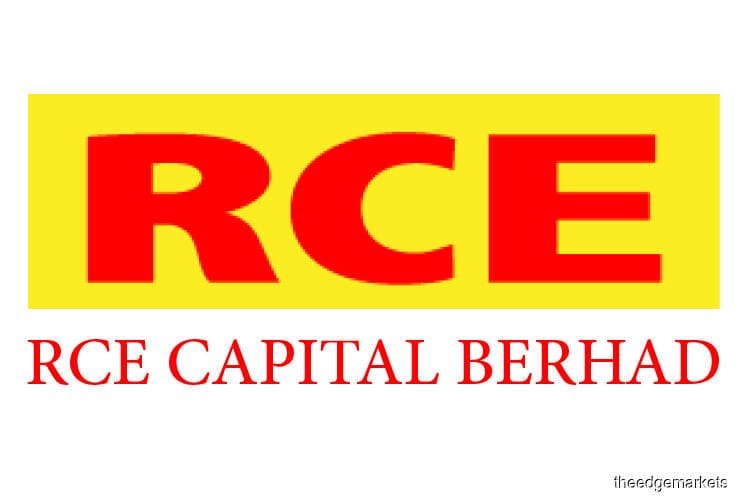
This article first appeared in The Edge Malaysia Weekly on November 18, 2019 - November 24, 2019
WHILE most banks struggle to maintain profit margins amid challenging times, RCE Capital Bhd appears to be in a sweet spot as its profit spreads are expected to expand this year due to falling cost of funds.
Its average cost of funds has been trending downwards of late, tracking Malaysian government securities’ 10-year yields. The non-bank financial institution (NBFI) sources its funds mainly from the debt market.
“In fact, every sukuk tranche that RCE Capital recently issued has been priced at subsequently lower profit rates. The Zamarad sukuk third tranche was priced at 4.51% or 41 basis points lower than the first one, which was issued less than eight months ago, and against an average of 5.51% for the earlier Al-Dzahab bonds. We forecast average cost of funds of 5.4% in FY2020 and 5.3% each in the following two years [compared with previous estimates of 5.4%, 5.7% and 5.9% respectively],” says Maybank Investment Bank (IB) Research analyst Yin Shao Yang in a recent report on the company.
He projects RCE Capital’s profit spreads to expand to 8.8% in the current financial year ending March 31, 2020 (FY2020), from about 8.5% in the previous year.
RCE Capital provides personal financing, mainly to civil servants. Its maximum loan tenure is 10 years and customers’ monthly repayments are kept under control as they are made through direct salary deductions.
Given that its main rivals, which include Bank Rakyat and MBSB Bank, have been reducing their exposure to personal financing in a bid to diversify their financing portfolio, a small player like RCE Capital is likely to benefit from the easing competition in this space.
Also, unlike commercial banks that are impacted by any movement in the overnight policy rate (OPR) given their various types of loans, RCE Capital is not affected as personal financing is extended at a fixed rate.
Last week, it reported 2QFY2020 earnings that came in within analysts’ expectations. Net profit that quarter came in at RM27.16 million, up 16% year on year and 13% quarter on quarter. “This was primarily contributed by higher interest and early settlement income as well as lower allowances for impairment loss on receivables, partially offset by higher expenses in relation to securing of financing arrangement,” the group said.
What also helped RCE Capital’s earnings was that net impairment loss on receivables fell 23% y-o-y. This brought cumulative net profit for the six months to date to RM51.28 million, a 10% rise from the same period a year earlier. It accounted for 52% of analysts’ consensus estimate for the full year. The group’s revenue for the six months grew 7% to RM137.11 million.
What was surprising, however, was the declaration of a first interim dividend of five sen a share, compared with four sen a year ago, slightly above Maybank IB Research’s expectations.
RCE Capital’s share price jumped on Nov 12, the day after it released its quarterly results, rising six sen or 3.8% to RM1.63.
A stock exchange filing shows that Cempaka Empayar Sdn Bhd, a company ultimately controlled by Tan Sri Azman Hashim of the AmBank Group, sold 16.948 million of its RCE Capital shares that day, reducing its shareholding to 54.66% from 60.76% before.
Analysts say RCE Capital has plenty of room to grow its presence in the civil servants’ segment. “Although RCE has 80,000 customers, they account for only 5% of the civil service. Bank Negara Malaysia estimates that 97% of all civil servants borrow. As at end-February 2018, civil servants’ total outstanding debt stood at RM236 billion. Of this amount, RM80 billion or 34% was in the form of personal financing. RCE Capital’s end-4QFY18 gross loan balance of RM1.6 billion accounts for only 2% of total outstanding civil servants personal financing debt,” Maybank IB’s Yin observes.
Bloomberg data shows that the two research houses that track the stock — Maybank IB and KAF Seagroatt & Campbell — have a “buy” call, with target prices of RM1.80 and RM1.98 respectively. “Our target price is premised on 0.87 times end-calendar-year 2020 price-to-book value (PBV), which is close to the five-year average 12 month forward PBV of 0.86 times. We continue to favour RCE Capital for its cheap valuations, high return on equity and high dividend yields,” says Maybank IB.
It sees the group paying a net dividend per share of nine sen in FY2020 compared with seven sen last year. RCE Capital’s asset quality was maintained in 2QFY2020, as indicated by its gross non-performing loan ratio of 4.4%, the same as in the preceding quarter, but slightly higher than the 4.3% in 2QFY2019.
Analysts, however, expect that credit costs may tick up from FY2020 onwards due to higher cost-of-living pressures.
Its gross loans in 2QFY2020 grew 5% y-o-y, while the estimated average lending yield hit 14.3% (2QFY2019:13.7%, 1QFY2020:14.1%).
Save by subscribing to us for your print and/or digital copy.
P/S: The Edge is also available on Apple's AppStore and Androids' Google Play.